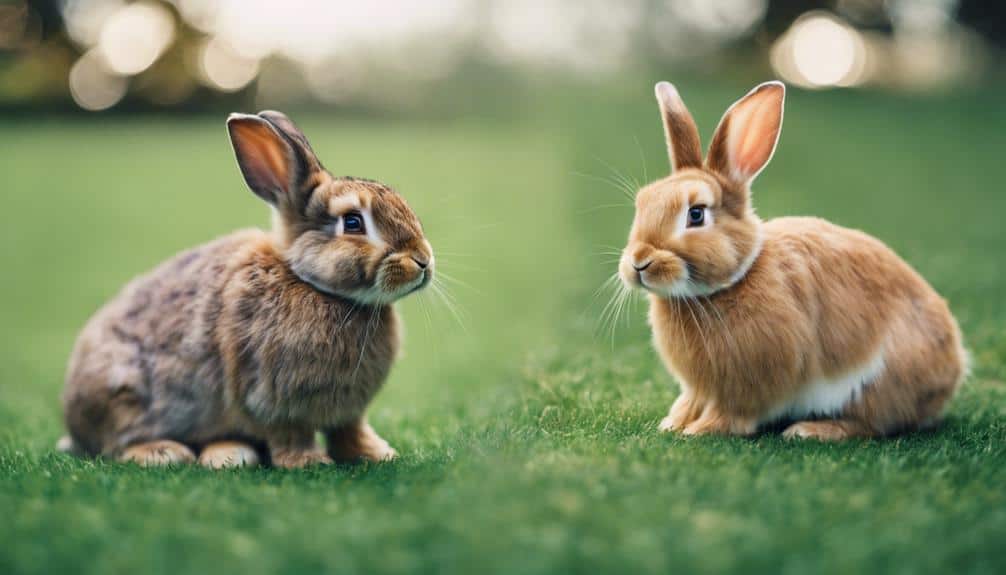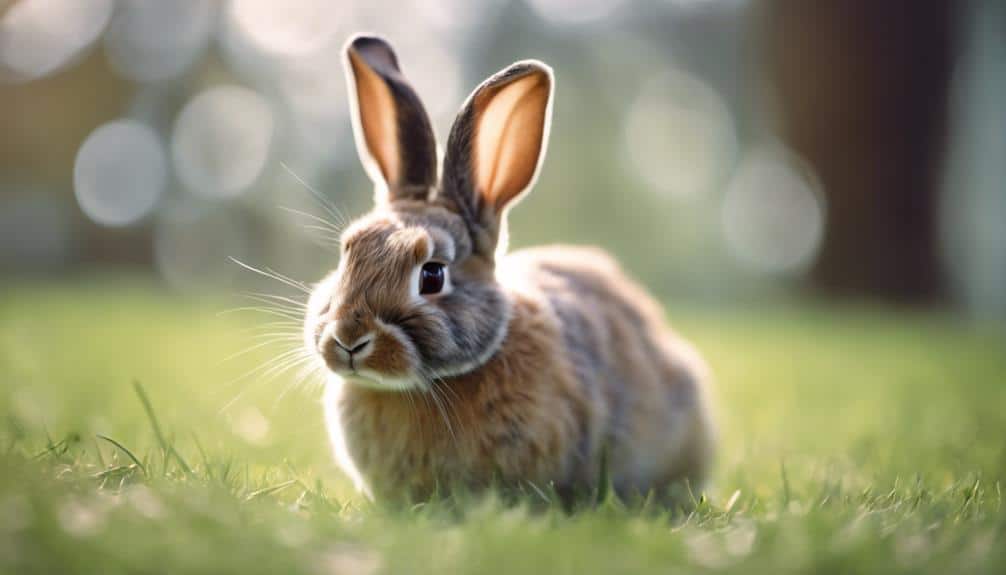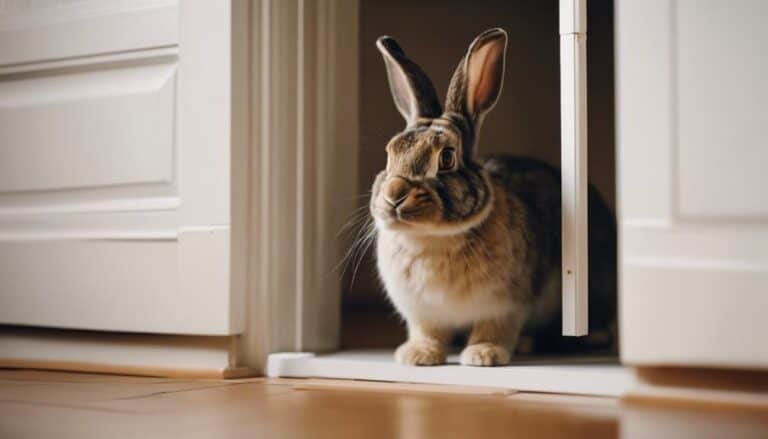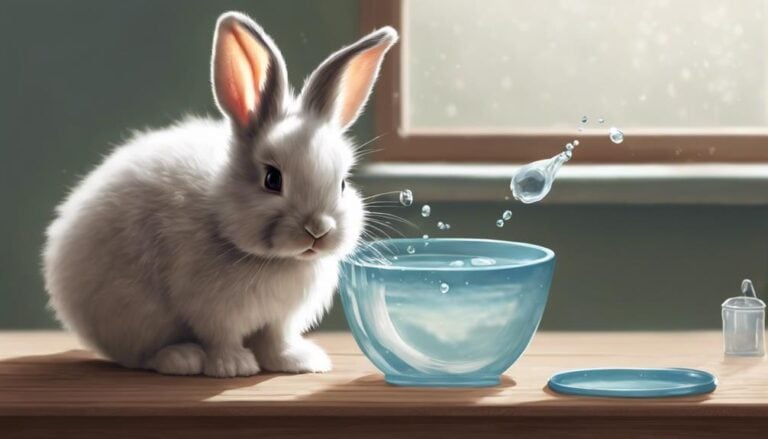If you've ever wondered about the lifespan of unspayed rabbits, the answer might surprise you. It's not as simple as you might think. The reality is that lots of factors come into play, influencing how long unspayed rabbits can expect to live.
Their biology plays a role. Rabbits are prone to certain health issues, like uterine cancer and pyometra, which can affect their lifespan. But that's not all. Environmental factors, like their diet and living conditions, also have an impact. For example, a rabbit that's fed a high-quality diet and gets plenty of exercise will likely live longer than one that's stuck in a small cage with low-quality food.
Then there's the issue of breeding. Unspayed female rabbits are at a higher risk of developing health problems, which can shorten their lifespan. In fact, according to some studies, unspayed female rabbits are at a much higher risk of dying young compared to spayed females. Males, on the other hand, are more prone to aggression and fighting, which can also affect their lifespan.
So, how long do unspayed rabbits actually live? The average lifespan of an unspayed rabbit is around 2-3 years, although some may live longer or shorter lives depending on the factors mentioned above. But with proper care and attention, it's possible for unspayed rabbits to live up to 5-7 years or more.
Contents
- 1 Key Takeaways
- 2 Rabbits' Lifespan Without Spaying
- 3 Impact of Uterine Cancer on Lifespan
- 4 Health Risks of Unspayed Rabbits
- 5 Behavioral Issues and Lifespan
- 6 Benefits of Spaying or Neutering
- 7 Lifespan Comparison: Spayed Vs. Unspayed
- 8 Enhancing Rabbit's Lifespan Through Spaying
- 9 Factors Influencing Unspayed Rabbits' Lifespan
- 10 Conclusion
Key Takeaways
So, how long do unspayed female rabbits live? Typically, they live between 2-5 years. Unfortunately, uterine cancer is a major risk factor that can significantly reduce their lifespan.
The good news is that spaying them when they're young can prevent uterine cancer and increase their longevity. But that's not all – genetics, diet, and environment also play a role in determining how long they live.
Regular vet check-ups and spaying can make a big difference in extending their lifespan. By taking these steps, you can help your rabbit live a longer, healthier life.
Rabbits' Lifespan Without Spaying

Unspayed female rabbits typically have a shorter lifespan due to the increased risk of developing reproductive cancers and infections.
The main health concern for these rabbits is uterine cancer. Research shows that they've an 80% chance of developing uterine cancer by the age of five. In fact, by age three, they've an 80% likelihood of developing uterine and/or ovarian cancer.
This high risk of uterine cancer is a major reason why unspayed female rabbits tend to live shorter lives compared to spayed or neutered rabbits.
In addition to uterine cancer, unspayed female rabbits are also more likely to develop mammary cancer and reproductive tract infections.
These health issues can significantly impact their overall health and longevity.
Given these risks, it's essential for rabbit owners to consider spaying their female rabbits.
Spaying can help prevent reproductive cancers and infections, leading to a longer and healthier life for their pets.
Impact of Uterine Cancer on Lifespan
If your female rabbit hasn't been spayed, there's a good chance she'll develop uterine cancer. This type of cancer is aggressive and can greatly reduce her lifespan.
The key to extending her life is early detection. Regular check-ups with your vet can help identify the issue early on, which can make a big difference.
In some cases, surgery might be necessary to remove the tumor or spay your rabbit. This can improve her quality of life and increase her lifespan.
But uterine cancer can spread to other organs, which affects her overall health and shortens her lifespan. And let's not forget about the pain and discomfort it causes, which can profoundly impact her quality of life.
Understanding the risks of uterine cancer in unspayed rabbits is crucial for ensuring their well-being and longevity.
Health Risks of Unspayed Rabbits

Spaying your rabbit can make a huge difference in reducing health risks related to reproductive issues.
If you don't spay your female rabbit, she's at a much higher risk of getting uterine cancer, which can greatly affect her health and lifespan. In fact, up to 80% of female rabbits over four years old who aren't spayed will get uterine cancer.
Spaying your rabbit when she's young, ideally before she reaches sexual maturity, can prevent this.
Another problem with not spaying your female rabbit is that she can develop other health issues related to her reproductive system, like uterine infections and ovarian cysts.
These can be very painful and uncomfortable for your rabbit, and can even reduce her quality of life.
By spaying or neutering your rabbit, you can help ensure she lives a healthier, longer life without these reproductive issues.
It's worth remembering that spaying or neutering isn't just good for your rabbit's health, it also contributes to her overall well-being.
Behavioral Issues and Lifespan
Behavioral issues in rabbits are a big deal when it comes to how long they live and how happy they are. If these problems aren't addressed, they can really reduce a rabbit's quality of life and even shorten their lifespan.
One major issue is behavioral problems. Rabbits might become aggressive, destructive, or chew excessively, which can cause them a lot of stress and lead to health problems if not dealt with.
Spaying female rabbits can make a big difference. This procedure can help reduce aggressive behavior, prevent certain health issues, and even improve their litter box habits.
Neutering male rabbits is also important. It can decrease territorial aggression, limit urine spraying, and might even help them live longer.
Ultimately, addressing behavioral issues doesn't just add years to a rabbit's life, but also helps create a harmonious relationship between the pet and its owner. This is crucial for the rabbit's overall health and well-being.
Benefits of Spaying or Neutering

Spaying or neutering your rabbit can greatly reduce the risk of certain health issues later on. By doing it as soon as your veterinarian recommends, you'll be giving your rabbit a longer and healthier life.
One of the main benefits is that it prevents certain cancers. It also eliminates the risk of uterine infections, which can be a serious problem for rabbits.
Spaying or neutering can also change your rabbit's behavior for the better. For example, it reduces territorial marking behavior, which means less mess and destruction in your home. It also decreases aggression towards other rabbits, making it easier to keep multiple rabbits together.
Finally, spaying or neutering helps control the rabbit population. By preventing unwanted litters, you'll be doing your part to reduce the number of homeless rabbits.
Lifespan Comparison: Spayed Vs. Unspayed
Unspayed female rabbits typically live between 2-5 years, which is a pretty short lifespan. The main reason for this is the high risk of ovarian cancer, which can be as high as 80% by the time they're five years old.
Spayed female rabbits can live up to 10-12 years or more. By spaying them, you drastically reduce the risk of ovarian cancer, which means they can live a much longer and healthier life.
Unaltered male rabbits also have a shorter lifespan, typically living between 2-5 years. This is because they're at risk of testicular cancer and other health issues.
Neutered male rabbits can live up to 10-12 years or more. Neutering significantly reduces the risk of testicular cancer and other health problems, which means they can live a longer, healthier life.
Spaying or neutering your rabbit can really make a big difference in their life expectancy and overall health. By opting for this procedure, you can potentially add years to their life, minimize the risk of various health problems, and ensure a longer, healthier life for your furry friend.
Enhancing Rabbit's Lifespan Through Spaying

Spaying your rabbit is a great way to improve their health and increase their lifespan.
One of the main benefits is that it prevents reproductive cancers, which are common in female rabbits.
Additionally, spaying reduces the risk of uterine infections, which can be life-threatening if left untreated.
Spaying for Health
Spaying your rabbit can greatly enhance their lifespan by preventing various health problems. By neutering your rabbit, you're reducing their risk of developing certain health issues.
One major benefit is the prevention of reproductive cancers. For female rabbits, spaying greatly reduces the risk of uterine, ovarian, and mammary gland cancers.
Spaying also has behavioral benefits. Spayed rabbits tend to be less aggressive, territorial, and have a reduced tendency to urine mark, making them more pleasant companions.
Additionally, spaying eliminates reproductive issues. It prevents life-threatening conditions like pyometra (uterine infection) and testicular cancer in males.
By spaying your rabbit, you're increasing their chances of living a longer, healthier life. You're avoiding the complications associated with reproductive organs, which can lead to a longer and happier life for your pet.
Considering these benefits, spaying your rabbit is a proactive step towards ensuring a longer and happier life for your beloved pet.
Longevity Benefits
Spaying your rabbit can greatly increase their lifespan. By doing so, you're reducing the risk of reproductive cancers and other health issues.
For instance, female rabbits that aren't spayed have a high chance of developing uterine and/or ovarian cancer. In fact, about 80% of them will face this risk by the age of three.
This makes spaying a crucial procedure to prevent such severe health conditions.
On average, unspayed female rabbits live for around 2-3 years. However, by spaying them, you can potentially extend their lifespan significantly.
With proper care and nutrition, spayed female rabbits can live up to 10-12 years or even longer.
Not only does spaying reduce the chances of reproductive cancers, but it also helps lower the risk of uterine infections and breast tumors.
These are common issues in unaltered rabbits, so spaying is a worthwhile decision to enhance the overall health and lifespan of your female rabbit.
Factors Influencing Unspayed Rabbits' Lifespan
Genetics play a significant role in determining the lifespan of an unspayed rabbit. The breed of your rabbit can determine how healthy they'll be and how long they'll live. Some breeds are more prone to certain health issues that can shorten their lifespan.
Diet is another crucial factor. What you feed your rabbit can make a big difference. A balanced diet with plenty of fiber, fresh veggies, and not too many pellets is the way to go. This will help keep your rabbit healthy and happy.
The environment your rabbit lives in is also crucial. They need space to move around, a clean place to live, and good air quality. Exercise and mental stimulation are essential too. If you can provide all of these things, you'll be giving your rabbit the best chance at a long and happy life.
Conclusion
Unspayed rabbits usually don’t live very long – typically between 2-5 years. The main reason is that they’re at high risk of getting ovarian and uterine cancer. Additionally, spaying not only helps extend a rabbit’s lifespan but also contributes to their overall health and well-being. Unfortunately, the rising number of unwanted rabbits often leads to increased abandonment rates for pet rabbits, as owners may be unprepared for the commitment. By spaying and neutering, we can combat the overpopulation crisis and help ensure that more rabbits find loving, permanent homes.
One pretty shocking stat is that up to 80% of unspayed female rabbits will develop uterine cancer by the time they're five years old. That's a huge factor in their short lifespan.
Spaying or neutering your rabbit can really improve their health and help them live longer.
On top of that, making sure they eat healthy food, get proper care, and have regular vet check-ups is vital for giving your furry friend a longer, happier life.






